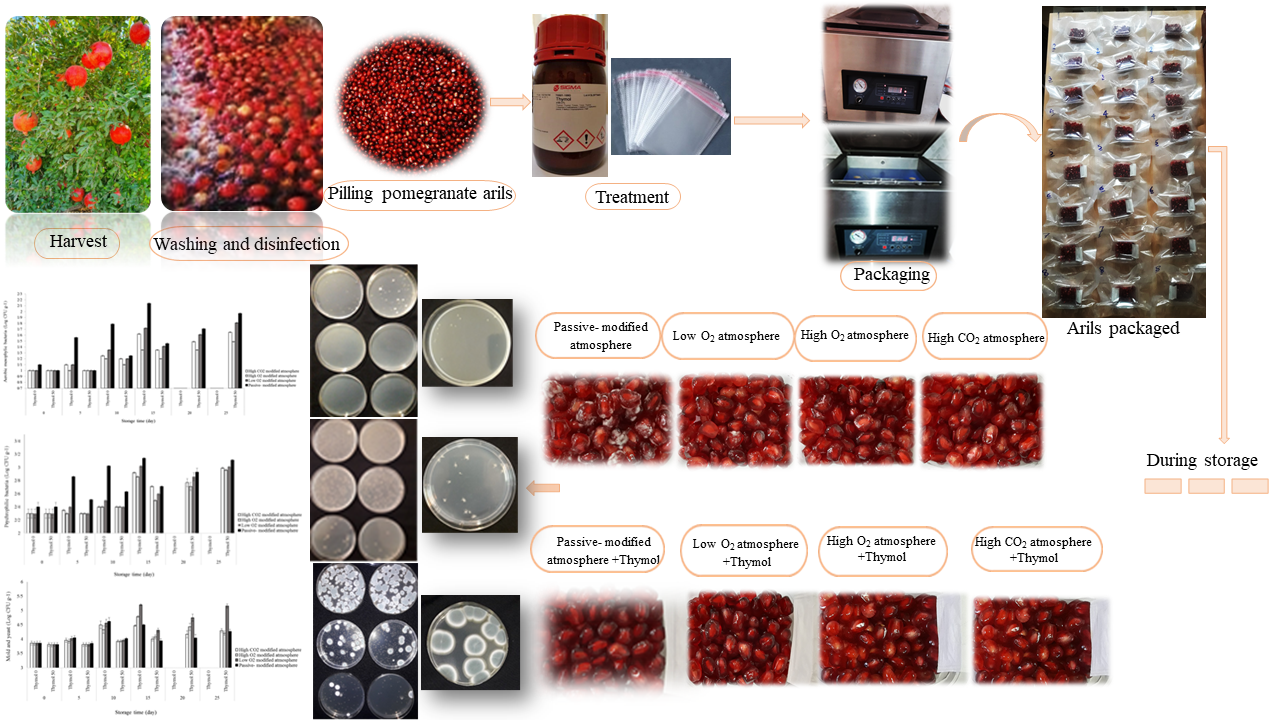Efficacy of active modified atmosphere packaging containing thymol on fortification of antioxidant capacity and reducing the microbial contamination of pomegranate arils

Published 2024-10-23
Keywords
- Aerobic mesophilic bacteria,
- antioxidant enzymes,
- bioactive compounds,
- Phenylalanine ammonia-lyase,
- Psychrophilic bacteria
How to Cite
Copyright (c) 2024 azam ranjbar

This work is licensed under a Creative Commons Attribution 4.0 International License.
Funding data
-
College of Agriculture, Shiraz University
Grant numbers Grant # 99GCB1M153030
Abstract
Pomegranate arils pose a significant challenge when it comes to preserving their nutritional value and preventing microbial contamination. This study aimed to explore the impact of thymol fumigation and active modified atmosphere packaging (MAP) on enzymatic activity and microbial contamination prevention in pomegranate arils. The results indicated that arils stored in a high O2 atmosphere (HO2A) with thymol had notably different catalase (CAT) and peroxidase (POD) activity levels compared to other treatments. These arils exhibited the highest CAT activity and the lowest POD activity. The highest phenylalanine ammonia-lyase (PAL) activity was observed in arils stored in HO2A with thymol, although it was not significantly different from those stored in a high CO2 atmosphere (HCO2A) with thymol (P<0.05). Arils stored in a low oxygen atmosphere (LO2A) and HCO2A with thymol showed the highest polyphenol oxidase (PPO) activity levels, while arils in HO2A with thymol had the lowest. The HO2A with thymol treatment resulted in the lowest presence of psychrophilic bacteria, although it was not significantly different from arils stored in LO2A with thymol (P<0.01). Based on cluster analysis results, HO2A with thymol, LO2A with thymol, and HCO2A with thymol could be considered the most effective treatments for extending the storage life of packaged pomegranate arils.





